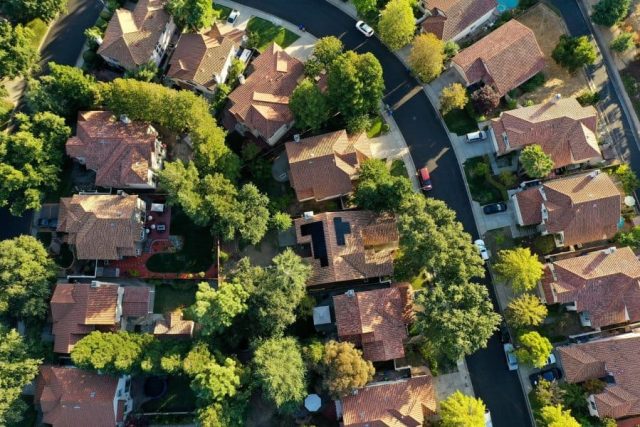In a world where climate change looms as an ever-present threat, the concept of sustainable living has taken center stage in our collective consciousness. It’s not just a buzzword; it’s a call to action, a way of life that holds the promise of a healthier planet for generations to come. But what does sustainable living truly entail, and how can we embrace it in our daily lives?
In this exploration, we’ll delve into eight fascinating ideas and viewpoints on sustainable living. From eco-conscious consumerism to innovative technologies and community-driven initiatives, these perspectives shed light on diverse ways we can all play a part in nurturing our planet while enhancing our quality of life. Let’s get started.
Environmental Stewardship
Environmental stewardship is a crucial concept in sustainable living, emphasizing responsible resource management and the preservation of our planet’s delicate ecosystems. It underscores our collective duty to minimize our ecological footprint by making conscious choices that prioritize the long-term health of the environment. This entails protecting biodiversity, conserving natural resources, and reducing pollution.
Individuals and organizations alike are called upon to be custodians of the Earth, striving to leave it in a better condition for future generations. As highlighted by the team behind Asia Pulp And Paper, sustainable practices such as recycling, reducing waste, and supporting eco-friendly policies, can help in promoting environmental stewardship and ensuring a more sustainable future for all.
Circular Economy
The circular economy is a visionary approach to sustainable living that reimagines our economic system. It aims to minimize waste and resource depletion by designing products and processes that prioritize reuse, repair, and recycling. In a circular economy, the concept of “waste” is transformed into a valuable resource, where products and materials are kept in circulation for as long as possible.
This approach not only reduces environmental impact but also fosters innovation, job creation, and economic resilience. By embracing the principles of the circular economy, we can shift away from the linear “take-make-dispose” model and move towards a regenerative system that benefits both the planet and our societies.
Renewable Energy
Renewable energy is the cornerstone of sustainable living and a vital solution to combat climate change. It encompasses sources like solar, wind, and hydroelectric power, which harness the Earth’s natural processes without depleting finite resources or emitting greenhouse gasses. Transitioning to renewable energy systems holds the promise of reducing our reliance on fossil fuels and curbing carbon emissions, which are major drivers of global warming.
Additionally, renewable energy offers energy security, economic benefits through job creation, and improved air quality. Embracing these clean and sustainable power sources is not only an environmental imperative but also a path towards a more resilient and sustainable energy future.
Local And Organic Food
Local and organic food consumption is a cornerstone of sustainable living. It entails choosing food that is grown and produced in proximity to one’s community, reducing the environmental impact associated with long-distance transportation.
Organic farming practices prioritize soil health and biodiversity while avoiding synthetic chemicals and genetically modified organisms. This not only benefits the environment but also promotes healthier diets, free from harmful pesticides and additives.
By supporting local farmers and markets, individuals can foster resilient food systems, strengthen local economies, and reduce carbon emissions associated with food transport. Embracing local and organic food options is a delicious and eco-conscious way to contribute to a more sustainable future.
Minimalism And Eco-Mindfulness
Minimalism and eco-mindfulness are intertwined principles that promote sustainable living in a world often characterized by excess and consumption. Minimalism encourages individuals to prioritize quality over quantity, declutter their lives, and reduce unnecessary possessions. It aligns with eco-mindfulness by emphasizing the importance of mindful consumption, encouraging people to think critically about their choices and their impact on the environment.
By adopting minimalist lifestyles and practicing eco-mindfulness, individuals can significantly reduce waste, conserve resources, and lead more intentional, fulfilling lives. These principles invite us to reevaluate our values, focus on what truly matters, and contribute to a more sustainable and harmonious coexistence with the planet.
Build Eco-Conscious Communities
Building eco-conscious communities is a pivotal aspect of sustainable living in today’s world. It involves fostering neighborhoods and societies that prioritize environmental responsibility, collective action, and shared resources. In such communities, residents collaborate on sustainable initiatives like recycling programs, green infrastructure, and energy-efficient housing, reducing overall ecological footprints.
Beyond tangible projects, eco-conscious communities promote environmental education, encouraging residents to make informed choices and embrace eco-friendly behaviors. These communities also inspire social connections, unity, and a sense of purpose, making it easier for individuals to live in harmony with the planet while fostering a spirit of cooperation that can ripple outwards to create broader positive change in our world.
Embrace Transportation Alternatives
Embracing transportation alternatives is a fundamental pillar of sustainable living. It involves shifting away from fossil fuel-dependent personal vehicles and exploring eco-friendly options such as public transit, cycling, walking, and electric vehicles. These alternatives offer multiple benefits, including reduced greenhouse gas emissions, improved air quality, and decreased traffic congestion.
By prioritizing public transportation and active modes of travel, individuals can minimize their carbon footprint and contribute to more sustainable urban environments. Furthermore, the adoption of electric vehicles and carpooling helps accelerate the transition to cleaner, more efficient transportation systems, which are essential in mitigating the challenges of climate change and ensuring a greener future for generations to come.
Raising Awareness And Environmental Education
Raising awareness and environmental education play pivotal roles in the journey toward sustainable living. These efforts empower individuals and communities with knowledge about environmental issues, fostering a deeper understanding of the interconnectedness between human activities and the planet’s health. Environmental education instills a sense of responsibility and equips people with the tools to make informed choices that reduce their ecological footprint.
By creating a culture of environmental consciousness, we can encourage sustainable practices, advocate for eco-friendly policies, and address pressing challenges such as climate change, biodiversity loss, and resource depletion. Ultimately, a well-informed and engaged populace is essential in shaping a more sustainable and resilient future.
Sustainable living encompasses a spectrum of ideas and viewpoints that are essential for safeguarding our planet’s future. From environmental stewardship to renewable energy, local and organic food choices to eco-mindfulness, and the promotion of eco-conscious communities to embracing transportation alternatives, these concepts collectively pave the way for a more environmentally responsible and balanced world. By prioritizing these principles and incorporating them into our daily lives, we can mitigate environmental challenges, reduce our ecological footprint, and create a sustainable legacy for generations to come, ensuring a harmonious coexistence between humanity and the planet.














